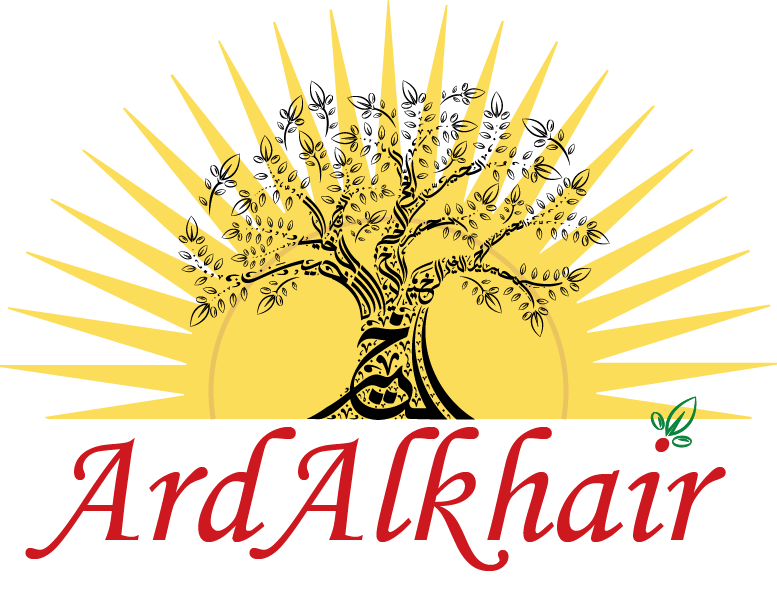- ArdAlkhair
- Our articles
- 0 likes
- 25932 views
- 0 comments

Palm trees, with their striking beauty and association with sunny climates, have always held a special place in our hearts. But beyond their aesthetics, palm trees have played a significant role in our nutrition, providing us with a rich source of vitamins and essential minerals.
Palm trees have transcended their role as mere agricultural assets. They hold deep cultural, religious, and historical significance across different civilizations. In Jordan, for instance, palm trees find mention in Jewish scriptures, where dates are one of the seven sacred fruits. The Bible also references the importance of palm trees, including the iconic moment when Jesus entered Jerusalem. In Islam, dates are especially prized during Ramadan, with a tradition of breaking the fast with these nutritious fruits, following the actions of the Prophet. The Quran, acknowledges the importance of palm trees, describing them alongside other significant elements of nature.
Dates, in particular, are highlighted for their unique qualities, and this recognition of their value dates back centuries. The cultivation of palm trees is believed to have originated in the Arabian Gulf, specifically on the island of "Harkan" in Bahrain. From there, these magnificent trees spread to Iraq and beyond, shaping the agriculture and landscapes of various regions.
Throughout history, palm trees have adorned palaces and monuments, with their trunks serving as majestic columns. In fact, palm tree cultivation was among the first types of farming to be regulated under Hammurabi's Code, demonstrating their enduring importance.
In today's rapidly changing world, palm trees, particularly those bearing Mejdool dates, are taking on a new role of economic significance. While some oil-producing countries face declines in oil production, palm oil, a product with diverse applications, is on the rise. Currently, 30 countries cultivate palm trees, with the Arab world leading the pack, contributing to 70% of international date production. Astonishingly, a single palm tree can yield 80 to 100 kilograms of dates after just seven years of planting.
The date fruit sector is a thriving part of our economy. For example, Turkey consumes nearly 10,000 tons of dates during Ramadan alone. Additionally, date cultivation provides employment opportunities, helping to reduce unemployment rates in Arab countries.
With over 2,000 varieties of dates worldwide, these fruits are incredibly diverse. Iraq boasts over 600 types, Iran and Libya each have around 400, and Saudi Arabia offers more than 400 varieties. The African continent, excluding Libya, adds thousands more to the list. Each type of date has a unique name, underscoring the significance of this agroindustry.
Looking ahead, as our global population is projected to reach 9 billion by 2050, the demand for food will soar. The Middle East and North Africa (MENA) region, with its favorable climate and soil conditions, will remain the ideal location for palm tree cultivation, ensuring a steady supply of dates.
Beyond their economic value, date fruits offer immense health benefits. Balah, a variety of dates, is a rich source of essential nutrients, including vitamins and minerals. Dates can be consumed as food, fruit, drink, dessert, and even medicine. They contain monosaccharides and disaccharides, making them a valuable energy source.
Every part of the palm tree serves a purpose. From the kernel, leaves, and fronds to the logs and stems, all can be utilized in various industries, including agriculture, construction, and manufacturing. Some date varieties are even used to extract natural incense.
Furthermore, palm trees play a crucial role in environmental conservation. They help maintain a balanced environment, prevent desertification, and protect surrounding flora. Their ability to adapt to harsh conditions, extensive root systems, and wind-blocking capabilities make them vital to sustaining ecosystems in arid regions.
Several Arab countries stand out for their substantial date production:
· Saudi Arabia: With over 23 million palm trees and an annual production exceeding one million tons, Saudi Arabia accounts for 16% of the global date production. Notably, the Qassim region is famous for its date cultivation.
· United Arab Emirates: Approximately 40 million palm trees thrive in the UAE, with "Al Ain" region being particularly renowned for its diverse gene pool.
· Palestine: Date palm cultivation has deep roots in Palestine, and its Mediterranean climate creates optimal conditions for date palm growth. Varieties like Medjool, Al-Barhi, and Elhayani are highly esteemed.
· Jordan: The Jordan Valley and some parts of the northeastern desert are known for their palm cultivation. Jordan is making significant efforts to develop palm cultivation, especially for the Medjool variety.
· Egypt: Egypt boasts around 20 million palm trees, with variations based on climatic conditions across different regions.
As the world evolves, so does our approach to palm cultivation. Tissue culture laboratories are transforming the industry, increasing the production of disease-free seedlings and enhancing plant quality. Additionally, international initiatives and festivals are promoting date culture and trade.
Despite these successes, challenges persist. Agricultural pests, limited awareness of pest control methods, traditional farming practices, aging palm trees, marketing issues, and weak technical expertise are among the hurdles. Political instability and conflicts also impact production in some regions.
Nonetheless, countries like Palestine have made remarkable progress in date palm cultivation in recent years. The production of Medjool dates, in particular, has gained international recognition for its exceptional quality and flavor.
In conclusion, date palm cultivation is not only a bridge to our rich history and culture but also a path to a sustainable and prosperous future. With dedication, innovation, and collaboration, we can continue to celebrate the legacy of this remarkable tree and savor its delicious fruits, like the world-famous Palestinian Medjool dates.





Comments (0)